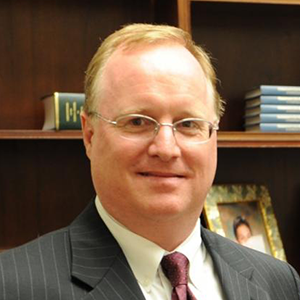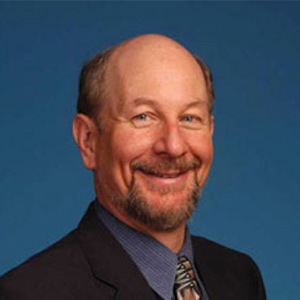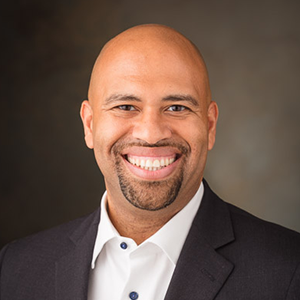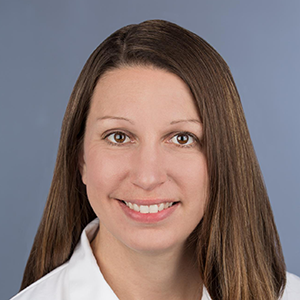ML-based clinical decision support technology is becoming more popular among healthcare provider organizations due to its ability to analyze large volumes of information, ensure that key data don’t escape the attention of the care team, and reduce alert fatigue. Unfortunately, most health systems are unprepared for how to select and deploy these new solutions. This session will discuss steps that hospitals and health systems should take to avoid mistakes and pitfalls.
Session Chair Profile
Biography
Dr. Hogarth is a board-certified Internist and Professor of Biomedical Informatics at UCSD where he serves as Clinical Research Information Officer. In that role, he leads a biomedical informatics team managing and optimizing information systems for clinical research. Dr. Hogarth has been involved in several large-scale research informatics initiatives including the Athena Breast Health Network (www.athenacarenetwork.org), the I-SPY2 adaptive breast cancer trial (www.ispytrials.org), and the pSCANNER clinical data research network (pscanner.ucsd.edu). Dr. Hogarth has also been a national leader in the re-engineering of vital statistics data systems. His public health informatics team developed the California Integrated Vital Records System (CalIVRS), which processes over 750,000 annual vital events. His team also developed the Maryland Electronic Death Registration System (MD-EDRS). Dr. Hogarth’s current interests include improving access to vital statistics data for research, enabling research analysis in secure cloud-based infrastructures, and the use of wearables/sensors as digital phenotypes in clinical trials.
Speaker Profile
Biography
John has dedicated his career to improving the health of all communities through clinical practice, public policy and health information technology. He led the largest US civilian deployment of an EHR, and co-founded the XML standard for interoperability (CDA, CCDA, CCD). He has served on numerous policy committees at state, federal (FACA), and international levels. He keynotes and consults internationallyin Health IT Policyand conducts workshops on HIT innovation. He co-chairedthe eHealth Workgroup of the Global Alliance for Genomics and Health (GA4GH), and hasadvisedthe X-Prize for the Tricorder, Sensor, Cancer, ALS, and Artificial Intelligenceprizes. He has published extensively, including “Perspectives” in Nature Medicine, is co-editor of the textbook on Health IT (McGraw Hill)and written book chapters on issues as diverse as ‘Privacy and Genomics’, ‘Innovation and IOT’, and ‘Future Roles in Healthcare’. He is a vocal advocate for person-centered care and patient engagement.
Speaker Profile
Biography
Albert guides the prioritization of analytics, aligning work with system strategies. Analytics is key to delivering on our mission. The position reports directly to the COO to assure that analytics work across the system is connected to our Intermountain Operating Model. System led and locally deployed analytics will create synergistic strength and enhance our ability to design and implement industry-leading solutions. The Chief Analytics Officer will work closely with other system leaders to understand strategic needs and align analytics resources with the highest priorities. Albert is a proven, high-performing analytics technology leader and team builder in healthcare. He comes to Intermountain from Swisslog Healthcare in Kirkland, Washington, where he has served as Vice President of Global Analytics & Connectivity. Previously, he served in executive roles leading analytics and data management at KenSci in Seattle, MultiCare Health System in Tacoma, and AdventHealth in Florida.
Speaker Profile
Biography
In addition to her current role Dr. Callcut is also the Director of Data Science for the UCSF Center for Digital Health and the Program Director of the UCSF SmarterHealth Artificial Intelligence Initiative. Dr. Callcut is double board certified in General Surgery and Critical Care maintaining an active clinical practice in trauma and critical care at UCSF and Zuckerberg San Francisco General Hospital. Dr. Callcut’s efforts with the Center for Digital Health Innovation are focused on leading a multi-disciplinary team working in artificial intelligence to drive change in the delivery of healthcare for both patients and providers. Dr. Callcut also directs a multidisciplinary NIH and DOD-funded research lab focused on the integration of data science into critical care for improved clinical decision support. In addition to her active clinical practice, she is the founder and director of the Trauma, Injury Science, and Critical Care Collaborative (TRISECT) research group at UCSF.
Speaker Profile
Biography
Throughout her career Dr. Dugger has led numerous cross-disciplinary projects to enhance precision medicine approaches to dementias and Parkinson’s disease. This has resulted in a plethora of peer-reviewed manuscripts and book chapters, and fostered numerous private, state, and federally funded research endeavors. She obtained her PhD from Mayo Clinic and completed her postdoctoral fellowship and was promoted to a staff scientist in a research-based autopsy program at the Banner Sun Health Research Institute. She previously led the neuropathology core for academic and drug discovery groups within the Institute of Neurodegenerative Diseases at the University of California San Francisco. With over a decade of experience, she currently runs her own laboratory and is a co-leader for the neuropathology core of the University of California Davis Alzheimer’s Disease Center. She is both serious and enthusiastic about a future informed by clinicopathological research focusing on precision medicine approaches to dementias and Parkinson’s disease.

















